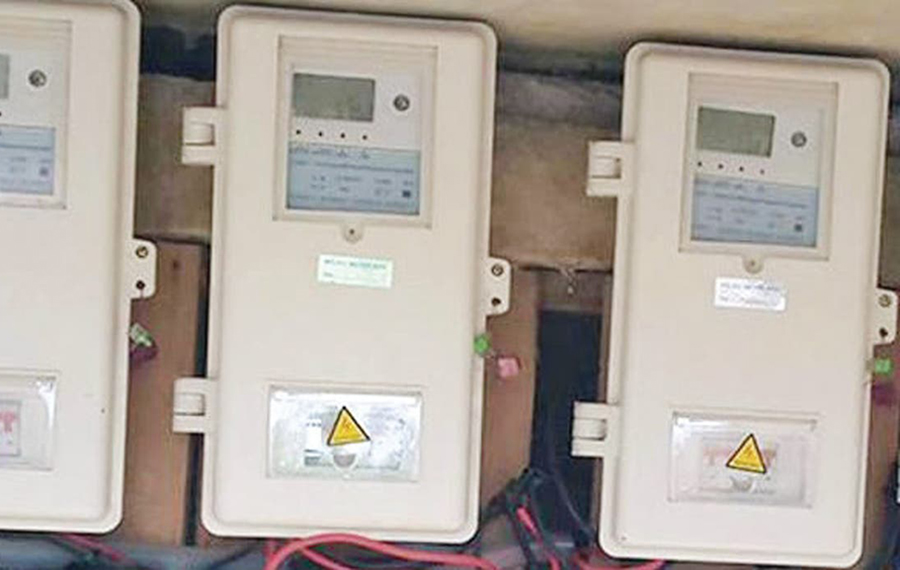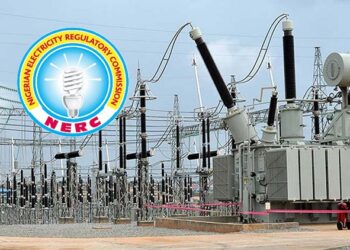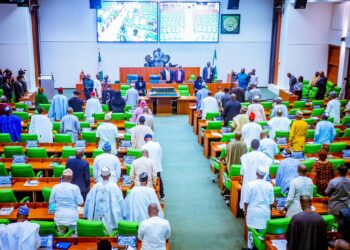The Nigerian Electricity Regulatory Commission (NERC) has issued a directive to the electricity distribution companies (DisCos) on the structured replacement of faulty and obsolete meters for their customers with effect from March 4, 2021.
This is to remove the bottlenecks that had previously impeded the rapid deployment of meters to unmetered customers and the receipt of complaints from metered customers in fourth-quarter 2020, that they had been served meter replacement notices by DisCos when all stakeholders were preparing for the National Mass Metering Programme (NMMP).
The directive from NERC is contained in Order No. NERC/246/2021, Titled, “In the matter of the order on structured replacement of faulty and obsolete end-user customer meter in Nigerian Electricity Supply Industry (NESI),” issued on March 4, 2021.
The commission noted that over 7 million customers are currently unmetered as indicated by the customer enumeration data. It also estimates that an additional 3 million meters are currently obsolete and due for replacement.
NERC pointed out that the existence of unmetered customers contributes to the threat affecting the financial viability of the NESI as unmetered customers expressed their displeasure with the estimated billing methodology.
The statement from NERC partly reads, “The Commission notes that over 7 million customers are currently unmetered as indicated by customer enumeration data. It is also estimated that an additional 3 million meters are currently obsolete and due for replacement.
“The existence of a large population of unmetered customers contributed to threats affecting the financial viability of NESI as unmetered end-use customers expressed deep dissatisfaction with the estimated billing methodology.
“The revenue assurance objectives of DisCos have also been challenged by being unable to properly account for the utilisation of electricity by end-use customers”.
Following the review from both the metered and unmetered customers, NERC issued the following order;
- DisCos shall grant priority to the metering of unmetered customers under the National Mass Metering Program.
- DisCos may replace faulty/obsolete meters under the National Mass Metering Program but these replacements must be done in strict compliance with the Metering Code and other regulatory instruments of the Commission.
- DisCos shall inspect meters of metered end-use customers and the replacement notice shall contain the following –
- The date of the inspection
- Name, designation and signature of the officer that inspected the meter.
- The fault identified in the meter.
- The date for the installation of the replacement meter
- The Commission shall be copied on all replacement notices issued to end-use customers for the purpose of conducting random reviews of the replacement
- New meters must be installed upon the removal of the faulty/obsolete meter and under no circumstances shall the customer be placed on estimated billing on account of the DisCo’s failure to install a replacement meter after the removal of the faulty/obsolete meter.
- The customer and DisCo representative shall jointly note the units on the meter being replaced and the customer must be credited with these units within 48 hours after the installation of the meter.
- Customers shall only be billed for loss of revenue where the DisCo establishes meter tampering, by-pass or unauthorised access as contained in NERC Order/REG/ 41/2017 on Unauthorised Access, Meter Tampering and Bypass.
- Activation tokens shall be issued to customers immediately after replacement of the faulty/obsolete meter.
- DisCos shall file monthly returns with the Commission on the replacement of faulty/obsolete meters along with their proposal for the decommissioned meters.
This Order may be cited as the Order on the Structured Replacement of Faulty/Obsolete Meters of End-Use Customers.”
What you should know
- NERC was mandated in the Electricity Power Sector Reform Act to maximize access to electricity services, by promoting and facilitating customer connections to distribution systems in both rural and urban areas and establish appropriate consumer rights and obligations regarding the provision and use of electricity services.
- Meters serve as a revenue assurance tool for NESI service providers and a resource management tool for consumers that receive services with the Meter Asset Provider (MAP) Regulations coming into force on April 3, 2018.




















I have applied for meter from lkdc no response
DisCos have enjoyed robbing their Nigerian customers for years, through the estimated billing. Now, NERC must be sincere and serious about the order it has issued. If the order remains a mere propaganda, nothing good would be achieved and it would imply that NERC has hand in robbing electricity consumers.
This month March 2021, a shocking bill of 6000 naira was sent to me. On enquiry at the PHED office here in eket Akwaibom state, was informed they received a circular from head office not to stop meter reading. That the digital meter I have installed is regarded as obsolete. So why bill me 6000 naira when my average monthly bill is less than half of that? Was told to pay the 6000 naira and purchase a prepaid meter. That is the way and manner customers of P.H.E.D. are treated.